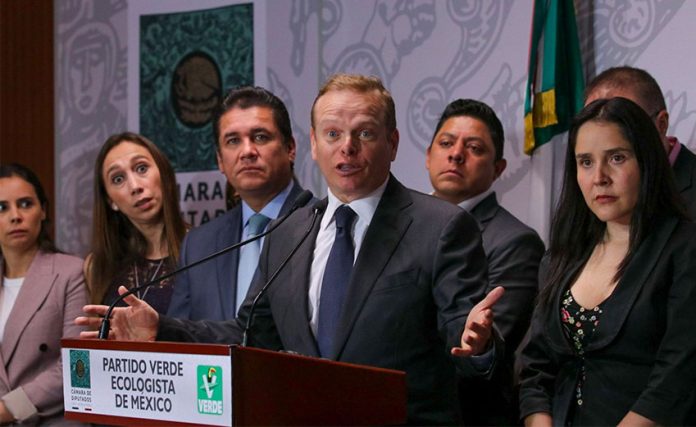Five lower-house lawmakers with the ruling Morena party and the entire contingent of 13 Green Party (PVEM) deputies presented on Tuesday a proposal to allow the death penalty in cases of femicide and aggravated homicide.
Under the proposal, which seeks to repeal the prohibition of capital punishment as outlined in Article 22 of the Mexican constitution, rapists who subsequently kill their victims, murderers of female minors and people found guilty of aggravated murder could be sentenced to death.
The Morena and PVEM deputies argued that even the threat of life imprisonment hasn’t been a sufficient deterrent to stop people from committing crimes of extreme cruelty, such as the murders this month of 25-year-old Ingrid Escamilla and 7-year-old Fátima Aldrighett.
The deputies said that the state has an obligation to punish the most heartless criminals with the severity that they deserve.
“We believe that the death penalty is a punishment that could help to reduce the … frequency of crimes such as those we have referred to,” the lawmakers said.
Their proposal does not seek to change any other parts of Article 22, which also prohibits physical punishments such as mutilation and torture.
Some lawmakers in the upper house of Congress also floated the idea of reconsidering the merits of the death penalty following the femicides of Escamilla and Fátima, whose deaths shocked Mexicans and led to the organization of a national women’s strike on March 9.
Senator Víctor Fuentes Solís of the National Action Party last week proposed holding a debate on whether men found guilty of the femicide of girls and women should face the death penalty. He said that experts from countries such as the United States and Japan, where capital punishment still exists, could be invited to participate in the debate.
However, the Morena party leader in the Senate, Ricardo Monreal, quickly poured cold water on the idea that the death penalty could be legalized in Mexico.
“Due to the circumstances and the crisis that the country has lived through in recent years, one cannot establish such barbaric penalties,” he said.
Even if there were sufficient support among lawmakers to legalize the death penalty, international law would stand in their way as Mexico is a signatory to the American Convention on Human Rights, which many Western Hemisphere countries signed in San José, Costa Rica, in 1969.
Article 4 of the convention – titled “Right to Life” – states that “the death penalty shall not be reestablished in states that have abolished it.”
However, that hasn’t stopped lawmakers from presenting proposals in recent years that sought to reintroduce capital punishment. Three such proposals were presented during the three-year term of Congress between 2006 and 2009 and another followed in the 2009-2012 period of the subsequent legislature. All were rejected.
In June 2018, the PVEM revived a proposal it first presented in 2009, its lawmakers advocating for the death penalty in cases of intentional homicide with aggravating circumstances such as rape, abduction and human trafficking. The same month, Nuevo León Deputy Jesús Gilberto Rodríguez Garza announced that he was presenting a proposal in favor of the death penalty for drug traffickers, murderers, kidnappers and rapists.
He also said that he favored chopping off the hands of thieves, as Nuevo León Governor Jaime “El Bronco” Rodríguez proposed while running for president in 2018.
Capital punishment dates back to pre-Hispanic times in the territory now known as Mexico but has been outlawed for almost a century. The Aztec, or Mexica, people, for example, imposed the death penalty via decapitation, stoning and hanging, among other methods.
A criminal code drawn up in independent Mexico in 1835 allowed convicted criminals to be killed with guns or clubs but the death penalty was abolished in 1869. However, it was reintroduced two years later before it was abolished again at the federal level in 1929.
Source: Milenio (sp), El Financiero (sp)
